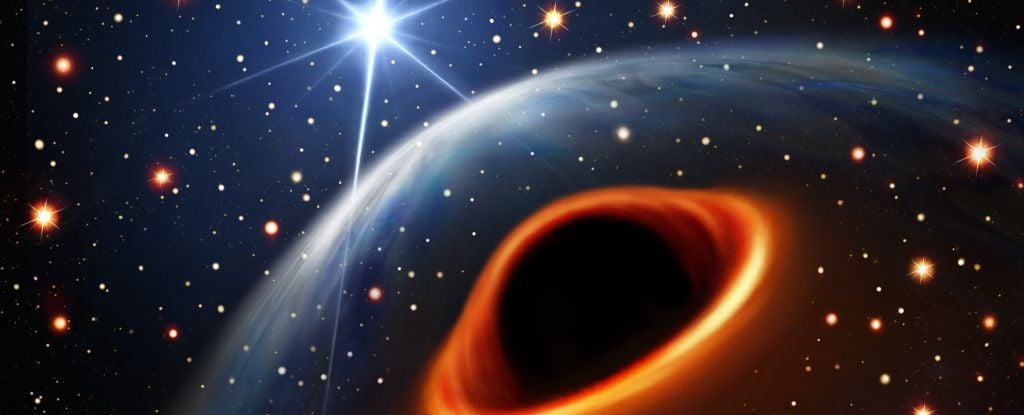Do You Know What Black Holes Really Do
Black holes are among the most mysterious objects in the universe. They don’t just “swallow everything”; instead, they reshape space, time, and energy in ways we are only beginning to understand. This article explains what black holes really do—from bending light to creating ripples in spacetime.
TECH & SCIENCE
Do You Know Team
7/20/20254 min read


For decades, black holes have fascinated scientists, writers, and movie makers alike. Often portrayed as cosmic monsters devouring everything in their path, black holes are actually far more complex and intriguing. Formed when massive stars collapse under their own gravity, black holes are regions of spacetime with gravity so strong that nothing—not even light—can escape. But what do they really do in the universe? Are they just destructive, or do they play a deeper role in shaping galaxies and cosmic evolution?
Let’s explore the real science behind what black holes actually do.
1. They Bend Space and Time
A black hole is not just a super-dense object; it’s a distortion of spacetime itself.
According to Einstein’s general relativity, mass bends space. A black hole, having enormous mass in a tiny space, bends spacetime to the extreme.
Near the event horizon (the point of no return), time slows down dramatically compared to distant observers.
This means black holes act like cosmic laboratories where the rules of time and space twist in unimaginable ways.
2. They Trap Light
The gravity of a black hole is so strong that light cannot escape once it crosses the event horizon.
This doesn’t mean we can’t “see” black holes. Instead, we detect them by observing the effects on nearby stars, gas, and dust.
The famous Event Horizon Telescope image (2019) showed the shadow of a black hole for the very first time.
So, black holes aren’t “invisible monsters”—they are regions where light itself is trapped.
3. They Power Some of the Brightest Objects in the Universe
Ironically, black holes create some of the brightest phenomena in space.
Matter falling into a black hole forms a superheated disk (accretion disk) that glows brighter than entire galaxies.
Jets of energy, traveling at nearly the speed of light, can shoot out from black holes, powered by their rotation.
This means black holes don’t just consume—they also energize the cosmos.
4. They Create Gravitational Waves
When two black holes collide, they release massive amounts of energy in the form of gravitational waves—ripples in spacetime.
These waves were first detected by LIGO in 2015, proving Einstein’s predictions right.
Gravitational waves carry information about cosmic events billions of years old.
So, black holes act as cosmic “messengers,” sending signals across the universe.
5. They Help Form and Shape Galaxies
At the center of nearly every large galaxy, including our Milky Way, lies a supermassive black hole.
These giants (millions to billions of times the Sun’s mass) regulate galaxy growth.
By feeding on matter and ejecting energy, they influence how stars form and how galaxies evolve.
In short, black holes may be the “architects” of galaxies.
6. They Stretch and Rip Matter Apart
Black holes exert a process called spaghettification.
As matter approaches, the gravitational pull is stronger on one side than the other, stretching it into long, thin shapes like spaghetti.
For humans or objects falling in, this would mean being stretched apart atom by atom.
It’s terrifying but also fascinating proof of the power black holes hold.
7. They Can Evaporate Over Time
Stephen Hawking proposed that black holes are not eternal.
Due to Hawking radiation, black holes slowly lose energy and can eventually evaporate.
Small black holes might vanish over cosmic timescales, while supermassive ones take trillions of years.
So, even the most powerful objects in the universe have an end.
8. They Hide a Mystery at Their Core
Inside a black hole lies a singularity—a point of infinite density where the known laws of physics break down.
What happens at the singularity remains unknown. Some theories suggest wormholes, parallel universes, or exotic forms of matter.
Black holes may hold the key to unifying general relativity with quantum mechanics.
They are, in many ways, the ultimate cosmic puzzle.
9. They Influence Time Travel Theories
Black holes inspire many ideas about time travel.
Since time slows near their event horizons, some scientists believe black holes could act as one-way time machines.
While practical travel is impossible (because of spaghettification), the physics behind it remains a subject of study.
Black holes remind us that time is not absolute—it bends with gravity.
10. They Prove the Universe Is Stranger Than We Imagine
Black holes are living proof that reality defies our intuition.
They show how gravity can stop time, how light can be trapped, and how matter can vanish.
Every discovery about black holes changes our understanding of the universe.
Far from being simple “space vacuums,” black holes are engines of cosmic transformation.
FAQs
Q1: Do black holes destroy everything?
A: Not exactly. They consume matter that crosses the event horizon, but they also create energy and shape galaxies.
Q2: Can Earth be swallowed by a black hole?
A: No. The nearest known black hole is over 1,000 light-years away. Our Sun is too small to ever become one.
Q3: How do scientists detect black holes if they trap light?
A: By observing their effects on nearby stars, gas, and by detecting gravitational waves.
Q4: Are black holes infinite?
A: No. They have limits, and they can eventually evaporate through Hawking radiation.
Q5: Could black holes be portals to other universes?
A: Some theories suggest this, but it remains unproven and highly speculative.
Conclusion
Black holes do much more than devour matter. They shape galaxies, generate powerful energy, bend time, send ripples through spacetime, and challenge the very limits of our physics. Instead of being just “cosmic destroyers,” black holes are essential to the balance and evolution of the universe. They are both creators and enigmas—showing us that the universe is far stranger and more wonderful than we ever imagined. Black holes don’t just exist in space; they redefine our understanding of reality itself.
#DoYouKnow #BlackHolesExplained #SpaceFacts #Astronomy #CosmicMysteries #StephenHawking #GravitationalWaves
Knowledge
Empowering minds with reliable educational content daily.
Newsletter Signup
© 2025 DoYouKnow. All rights reserved.
Stay Ahead of the Trends – Join Our Newsletter
